 Our observation employed either, about external sensible objects, or about the internal operations of our minds perceived and reflected on by ourselves, is that which supplies our understandings with all the MATERIALS of thinking. These two are the fountains... Our observation employed either, about external sensible objects, or about the internal operations of our minds perceived and reflected on by ourselves, is that which supplies our understandings with all the MATERIALS of thinking. These two are the fountains...  The Philosophical Works of John Locke - Page 206by John Locke - 1854Full view The Philosophical Works of John Locke - Page 206by John Locke - 1854Full view - About this book
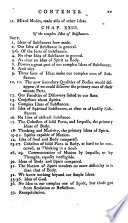 | John Locke - 1806 - 390 pages
...on by curfelve-s, is that •which fupplits our underflandings with tnatcrialf of think" ing. Theie two are the fountains of knowledge, from whence all the ideas we have, or ca»i naturally ; have, do fpring. § 3. The OljeSls of Senfation ons Source of Ideas. FIRST, Ourfenfes,... | |
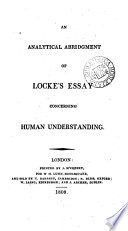 | John Locke - 1808 - 346 pages
...ideas, or materials of thinking, from observation, employed either about external sensible oljects, or about the internal operations of our minds, perceived and reflected on by ourselves. Our Senses convey into the mind, from particular sensible objects, several distinct perceptions, that... | |
 | Dugald Stewart - 1811 - 590 pages
...knowledge is founded, and from " that it ultimately derives itself. Our observation, em" ployed, either about external sensible objects, or about " the internal operations of our minds, perceived and re" fleeted on by ourselves, is that which supplies our un" derstanding with all the materials for... | |
 | 1812 - 84 pages
...that ideas were innate. C 4. S 24. BOOK H. Our observation employed either about external stnsible objects, or about the internal operations of our minds, perceived and reflected by ourselves, is .that which supplies our understanding with all the materials of thinking. C 1. S... | |
 | John Locke - 1813 - 518 pages
...internal ofte rations of our minds, fiercei-aed and reflected on by ourselves, is that which sufifilies our understandings with all the materials of thinking....whence all the ideas we have, or can naturally have, do spring. § 3. The objects of sensation one source of ideas. FIRST, Our senses, conversant about particular... | |
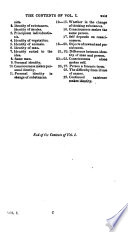 | John Locke - 1815 - 454 pages
...our knowledge is founded, and from that it ultimately derives itself. Our observation employed either about external sensible objects, or about the internal...whence all the ideas we have, or can naturally have, do spring. f 3. The objects of sensation one source of ideas. First, Our senses, conversant about particular... | |
 | John Locke - 1816 - 1048 pages
...our knowledge is founded, and from that it ultimately derives itself. Our observation employed either about external sensible objects, or about the internal...supplies our understandings with all the materials of thinkjng. These two are the fountains of knowledge, from whence all the ideas we have, or can naturally... | |
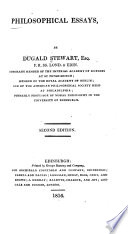 | Dugald Stewart - 1816 - 644 pages
...knowledge is founded, and from that " it ultimately derives itself. Our observation, em" ployed either about external sensible objects, or " about the internal operations of our minds, per" ceived and reflected on by ourselves, is that which " supplies our understanding with all the... | |
 | John Locke - 1817 - 556 pages
...our knowledge is founded, and from that it ultimately derives itself. Our observation employed either about external sensible objects, or about the internal...that which supplies our understandings with all the materr' s of thinking. These These two are the fountains of knowledge, from whence all the ideas we... | |
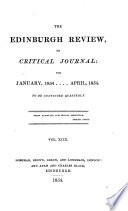 | 1854 - 718 pages
...expressions, ought to be allowed to overbear this distinct affirmation. His often-quoted words are : — ' These two are the fountains of knowledge, from whence all the ideas we have or can naturally have, do spring. First, our senses, conversant about particular sensible objects, do convey into the mind several... | |
| |